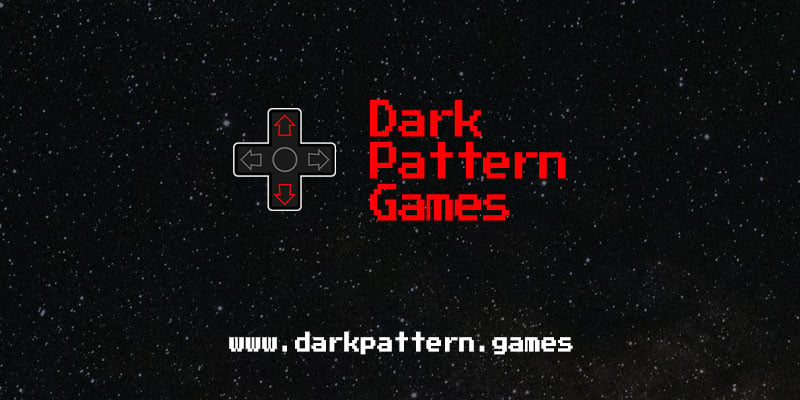Definition: A gaming dark pattern is something that is deliberately added to a game to cause an unwanted negative experience for the player with a positive outcome for the game developer.
Learned about it from another lemmy user! it’s a newer website, so not every game has a rating, but it’s already super helpful and I intend to add ratings as I can!
While as an adult I think it’ll probably be helpful to find games that are just games and not trying to bait whales, I feel like it’s even more helpful for parents.
Making sure the game your kids want to play is free of traps like accidental purchases and starting chain emails with invites I think makes it worth its weight in gold.
EDIT: Some folks seem to be concerned with some specific items that it looks for, but I’ve been thinking of it like this:
1 mechanic is a thread, multiple together form a pattern. It’s why they’ll still have a high score even if they have a handful of the items listed.
Like random loot from a boss can be real fun! But when it’s combined with time gates, pay to skip, grinding, and loot boxes… we all know exactly what it is trying to accomplish. They don’t want you to actually redo the dungeon 100 times. They want you to buy 100 loot boxes.
Guilds where you screw over your friends if you don’t play for a couple days because your guild can’t compete and earn the rewards they want if even a single player isn’t playing every single day? Yeah, we know what it’s about. But guilds where it’s all very chill and optional? Completely fine.
Games that throw in secret bots without telling you to make you think you’re good at the game combined with a leader board and infinite treadmill, so you sit there playing the game not wanting to give up your “top spot”? I see you stupid IO games.
But also, information is power to the consumer.



Isn’t that every game? I can’t think of a single game, back to old Atari 2600 or arcade games, that doesn’t have this element. Many people are playing to see how far they can get, to beat the game.
I looked at their individual page (https://www.darkpattern.games/pattern/4/psychological-dark-patterns.html)…
So I guess they are referring to is something more transactional… for example, if I spent $100 on a gacha game or loot boxes to get a bunch of ultra-rare SSRs. I’d be pretty compelled to keep playing since I’ve already spent so much money on it.
They are not counting, for example, that I get hooked on some weird roguelike game because I genuinely want to get better at it but can stop any time. And if I lose my save file I would still happily start from scratch again (which, hilariously, a pattern named Infinite Treadmill is marked for both Slay the Spire and Balatro… https://www.darkpattern.games/pattern/14/infinite-treadmill.html)
I mean, games without memory didn’t. Because once you turned off the game, it was all gone. This is more referring to if you have spent $200 on a game, and have like special event stuff in it, you’ll struggle to give it up.
But again, this is all part of bigger pictures. If it has this + grinding + time lock things + micro transactions it’s a problem. Games with just a couple of the features still have a high score of like 3+ and will be good games. Some of the things it asks about are only problems paired with other mechanics, while some categories are by themselves enough to be a problem.